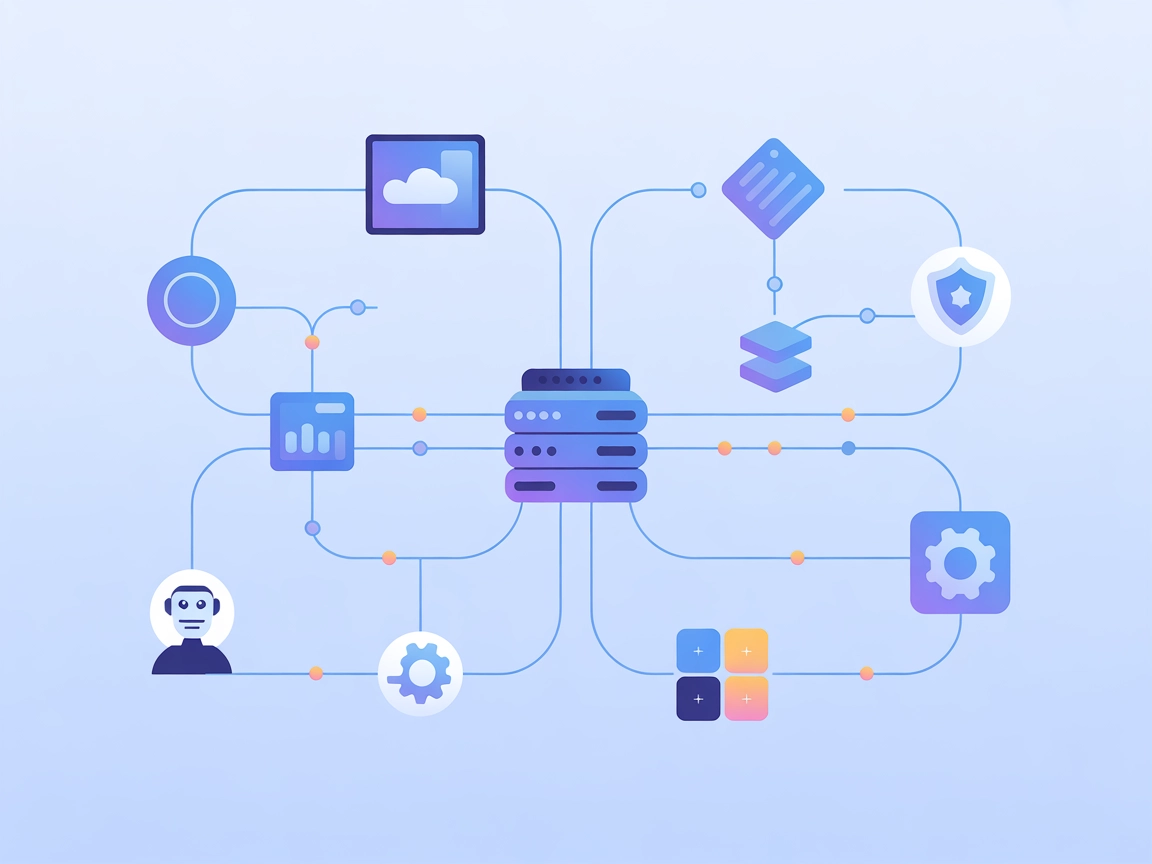
Firefly MCP Server
The Firefly MCP Server enables seamless AI-driven discovery, management, and codification of resources across your Cloud and SaaS environments. Integrate with t...

Bridge WildFly servers with FlowHunt-powered AI—manage, monitor, and automate server operations using natural language or agent workflows.
FlowHunt provides an additional security layer between your internal systems and AI tools, giving you granular control over which tools are accessible from your MCP servers. MCP servers hosted in our infrastructure can be seamlessly integrated with FlowHunt's chatbot as well as popular AI platforms like ChatGPT, Claude, and various AI editors.
The WildFly MCP (Model Context Protocol) Server is designed to bridge WildFly servers with generative AI tools, enabling users to monitor and manage WildFly servers using natural language interactions. By acting as a connector between AI assistants and WildFly’s management API, the WildFly MCP Server allows developers and operators to automate operational tasks, retrieve server metrics, control deployments, and perform administrative actions through conversational AI or agent workflows. This integration enhances productivity by simplifying complex server management tasks and making advanced WildFly features accessible via AI-driven prompts, workflow automation, and chatbots.
No prompt templates are mentioned in the provided repository files.
No explicit list of resources (as MCP resources) is mentioned in the provided documentation.
No explicit tools are listed in the available documentation or visible code structure. The repository references MCP servers and gateways but does not enumerate specific tool endpoints or functions.
{
"mcpServers": {
"wildfly-mcp": {
"command": "npx",
"args": ["@wildfly/mcp-server@latest"]
}
}
}
{
"mcpServers": {
"wildfly-mcp": {
"command": "npx",
"args": ["@wildfly/mcp-server@latest"]
}
}
}
{
"mcpServers": {
"wildfly-mcp": {
"command": "npx",
"args": ["@wildfly/mcp-server@latest"]
}
}
}
{
"mcpServers": {
"wildfly-mcp": {
"command": "npx",
"args": ["@wildfly/mcp-server@latest"]
}
}
}
Securing API Keys
To keep your API keys secure, use environment variables and map them as follows:
{
"mcpServers": {
"wildfly-mcp": {
"command": "npx",
"args": ["@wildfly/mcp-server@latest"],
"env": {
"WILDFLY_API_KEY": "${WILDFLY_API_KEY}"
},
"inputs": {
"apiKey": "${WILDFLY_API_KEY}"
}
}
}
}
Using MCP in FlowHunt
To integrate MCP servers into your FlowHunt workflow, start by adding the MCP component to your flow and connecting it to your AI agent:

Click on the MCP component to open the configuration panel. In the system MCP configuration section, insert your MCP server details using this JSON format:
{
"wildfly-mcp": {
"transport": "streamable_http",
"url": "https://yourmcpserver.example/pathtothemcp/url"
}
}
Once configured, the AI agent is now able to use this MCP as a tool with access to all its functions and capabilities. Remember to change “wildfly-mcp” to whatever the actual name of your MCP server is and replace the URL with your own MCP server URL.
| Section | Availability | Details/Notes |
|---|---|---|
| Overview | ✅ | Overview from README and project description |
| List of Prompts | ⛔ | No prompt templates found |
| List of Resources | ⛔ | No explicit MCP resources listed |
| List of Tools | ⛔ | No explicit tool list found |
| Securing API Keys | ✅ | Security section and config example provided |
| Sampling Support (less important in evaluation) | ⛔ | Not mentioned |
Based on the available documentation, WildFly MCP provides basic project information, clear setup instructions, and several integration points, but lacks detailed technical documentation on prompts, resources, and tools. It appears early-stage or focused on infrastructure rather than rich out-of-the-box AI workflows.
This project scores a 5/10. It provides a clear overview, licensing, and setup details, but lacks in-depth documentation of MCP resources, prompts, and tools, which would be essential for more advanced or immediate use.
| Has a LICENSE | ✅ (Apache-2.0) |
|---|---|
| Has at least one tool | ⛔ |
| Number of Forks | 9 |
| Number of Stars | 5 |
The WildFly MCP Server connects WildFly application servers to generative AI tools via FlowHunt, enabling monitoring, management, and automation using natural language or AI-driven workflows.
WildFly MCP enables AI-powered server monitoring, automated management operations, workflow integration, troubleshooting, and cloud deployment support for WildFly environments.
Use environment variables for sensitive values—define your API key as WILDFLY_API_KEY and reference it in your MCP server configuration to prevent exposure.
The current version does not include prompt templates or a detailed tool list; its focus is on infrastructure integration and server control via AI.
Add the MCP component to your FlowHunt flow, then configure it with your WildFly MCP server’s details. This enables your AI agent to use all available WildFly MCP capabilities.
Unlock AI-driven management for your WildFly servers. Integrate the WildFly MCP Server with FlowHunt for effortless automation, monitoring, and operational control.

The Firefly MCP Server enables seamless AI-driven discovery, management, and codification of resources across your Cloud and SaaS environments. Integrate with t...

The iFlytek Workflow MCP Server integrates AI assistants with iFlytek's workflow automation platform, enabling seamless scheduling, orchestration, and execution...

The Model Context Protocol (MCP) Server bridges AI assistants with external data sources, APIs, and services, enabling streamlined integration of complex workfl...
Cookie Consent
We use cookies to enhance your browsing experience and analyze our traffic. See our privacy policy.